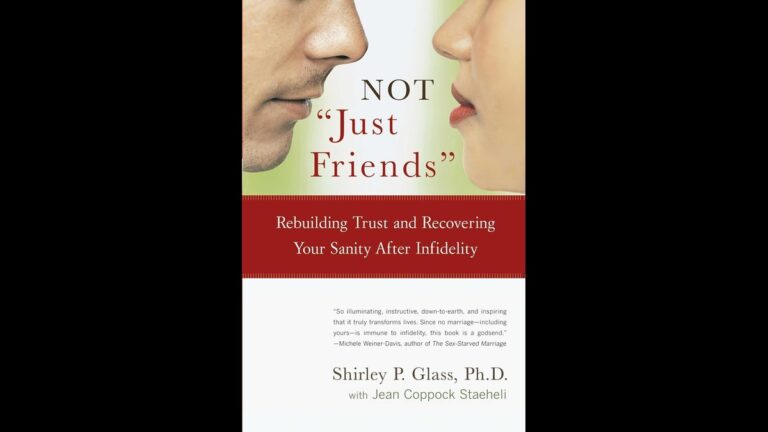Afterword: Mini-Guide To Safe Friendships and A Secure Marriage
So we end where we began, with real people wishing they had had the foresight to prevent infidelity before it wreaked havoc. When they say, “I wish I could go back in time before the affair,” I ask what information would have helped and what they would say to others. They tell me that they didn’t know how good friendships could imperceptibly cross the line. They never comprehended that you could love two different people at the same time. It never occurred to them that good people in good marriages could be vulnerable to betraying their partners. Some say they would have worked to fix their marriage instead of running away from problems. Many never considered how much pain their actions would cause, or how long it would take to heal.
After reading this book, you are now more aware of the threat of platonic friendships that evolve into romantic love affairs. You know how to recognize individual, relational, and social vulnerabilities. You have seen how the revelation of infidelity leads to shattered assumptions and traumatic reactions. You have also observed dedicated couples rebuilding their relationships with greater intimacy and honesty than ever before.
Facts about infidelity and love that have been explored in depth throughout the preceding pages will be summarized here. Pointers on maintaining safe friendships and preserving committed relationships are intended for those still on safe ground and those who need to step back from the edge of the slippery slope. These pointers are also directed toward couples who are recovering from infidelity–so they will never again have to face the trauma of betrayal in the form of a relapse or a new affair.
Seven Facts You Need to Know About Infidelity
- A happy marriage is not a vaccine against infidelity.
- The person having an affair may not be giving enough at home rather than not getting enough.
- It is normal to be attracted to another person, but fantasizing about what it would be like to be with that other person is a danger sign.
- Flirting is crossing the line because it is an invitation that indicates receptivity.
- Infidelity is not only about love or sex–it’s about maintaining appropriate boundaries with others and being open and honest in your committed relationship.
- You do not have to have sexual intercourse to be unfaithful. Passionate kissing or oral sex is a violation of your commitment to your partner.
- Emotional affairs are characterized by secrecy, emotional intimacy, and sexual chemistry. Emotional affairs can be more threatening than brief sexual flings.
What You Need to Know About Love
- People compare and confuse the intensity of being “in love” during an affair with the secure, comfortable feeling of reality-based “loving” that occurs in long-term relationships.
- The feeling of being “in love” is linked to Stage One idealization, passion, and infatuation.
- True love, which you grow into, is characterized by acceptance, understanding, and compassion. That is why so few people end up marrying their affair partners, and those who do have an extremely high probability of divorce.
- Once the affair is no longer the forbidden relationship that takes place in a golden bubble, the cold light of day soon bursts the romantic fantasies.
Seven Tips for Preventing Infidelity
- Maintain appropriate walls and windows. Keep the windows open at home. Put up privacy walls with others who could threaten your marriage.
- Recognize that work can be a danger zone. Don’t lunch alone or take coffee breaks with the same person all the time. When you travel with a co-worker, meet in public rooms, not in a room with a bed.
- Avoid emotional intimacy with attractive alternatives to your committed relationship. Resist the desire to rescue an unhappy soul who pours his or her heart out to you.
- Protect your marriage by discussing relationship issues at home. If you do need to talk to someone else about your marriage, be sure that person is a friend of the marriage. If the friend disparages marriage, respond positively about your relationship.
- Keep old flames from re-igniting. If a former lover is coming to the class reunion, invite your partner to come along. If you value your marriage, think twice about having lunch with an old flame.
- Don’t go over the line when you’re online with Internet friends. Discuss your online friendships with your partner and show him/her your e-mail if he/she is interested. Invite your partner to join your correspondence so your Internet friend won’t get the wrong ideas. Don’t exchange sexual fantasies online.
- Make sure your social network is supportive of your marriage. Surround yourself with friends who are happily married and who don’t believe in fooling around.
Critical Elements for Healing the Trauma of Infidelity
- Recovery requires reversing the walls and windows in the extramarital triangle to place the betrayed partner inside and the affair partner outside.
- Healing cannot begin without safety. The first step in establishing safety is to stop all contact with the affair partner.
- Rebuilding trust after deception and lying is achieved by complete honesty about the infidelity. Voluntarily sharing all unavoidable encounters with the affair partner is an essential trust-builder.
- Discussing the story of the affair is crucial for understanding the meaning of the infidelity.







